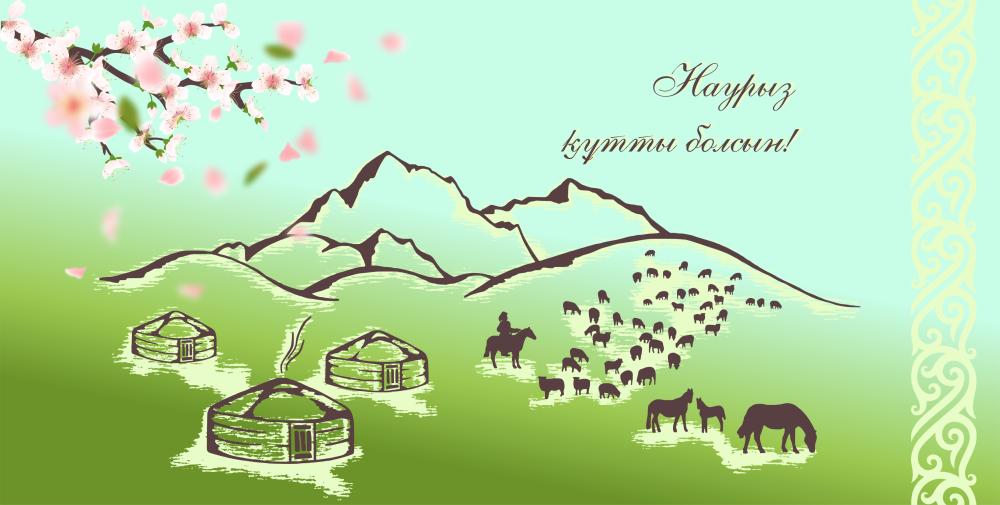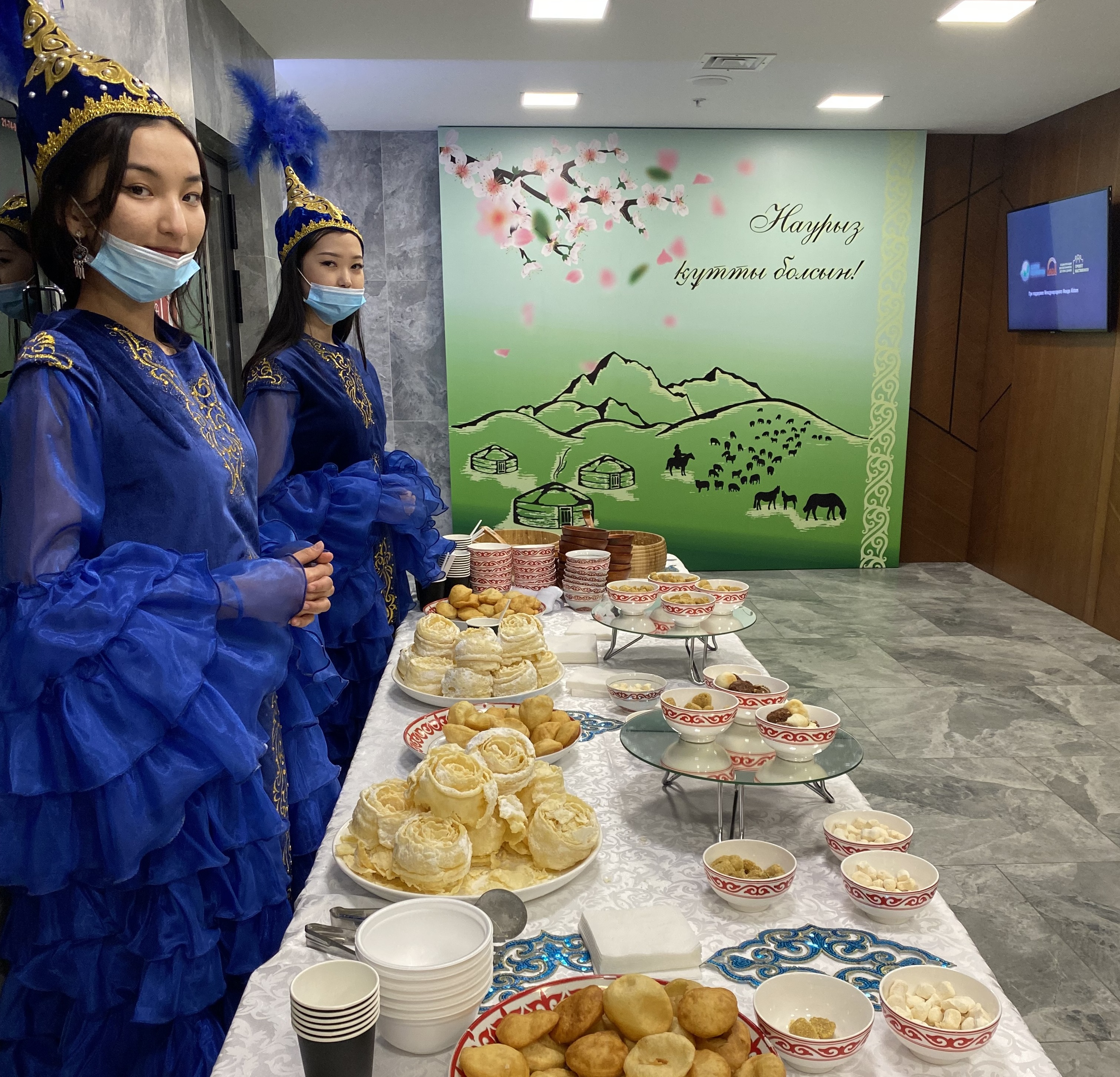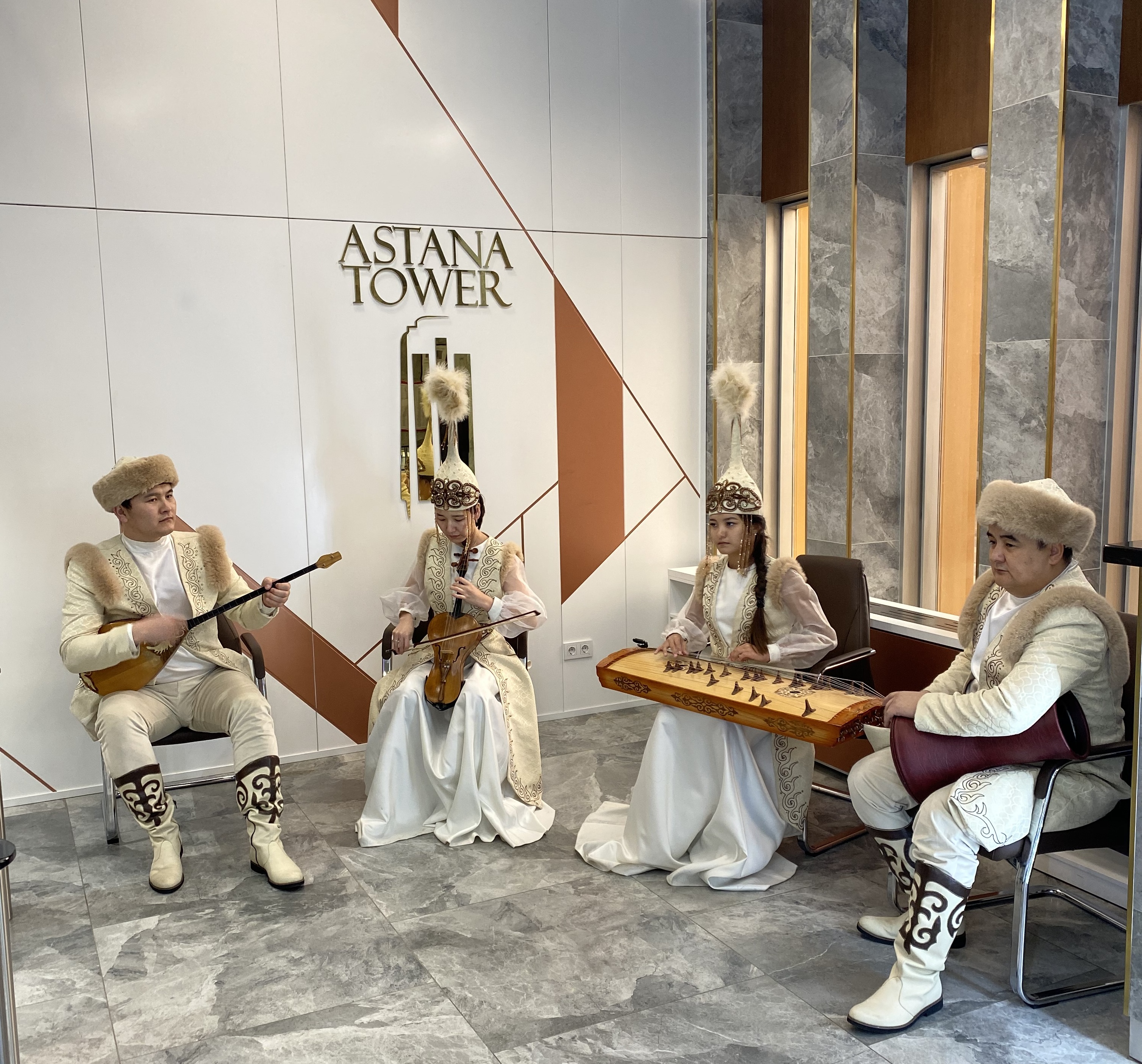Nauryz – Holiday of unity, spring and rebirth of nature

For the eastern people, Nauryz is an important symbolic holiday. It contributes to the preservation of cultural diversity, the establishment of peace, the good neighborliness, solidarity and reconciliation of people in the broadest sense. The holiday symbolizes the cyclical nature of life, the onset of a new year, a caring attitude towards nature and the affirmation of life in harmony with it. Many traditions and customs are associated with Nauryz.
Traditionally, Nauryz was celebrated from dawn. People performed an ancient ritual of cleaning the springs. After that, a magnificent feast began. It was believed that the more delicious food was laid on the table, the more abundant the year would be. Meeting on a holiday, people exchanged good wishes with acquaintances, friends and relatives. Everyone tried to be in a good mood, embraced each other, and expressed best wishes so that all troubles and misfortunes would bypass.
During the celebration of Nauryz, a lot of food was prepared, symbolizing prosperity and abundance. Festive table was covered in every home. The main treat was the Nauryz kozhe dish. Nauryz kozhe is a ritual dish, a soup that includes seven components: water, meat, salt, fat, flour, cereals and milk. The number seven itself has a sacred character among the Kazakhs. The seven components of Nauryz kozhe meant the seven elements of life. A huge cauldron for Nauryz kozhe symbolized unity.
In addition, at noon, a bull was slaughtered at a designated place and a special meat dish "Bel coterer" was prepared, which means "straightening mill". According to the ideas of the Kazakhs, the bull was considered one of the strongest animals, and food from it gave people strength and endurance.
Nauryz holiday has always been accompanied by mass fun. People amused themselves with jumps, various outdoor games, competitions in dexterity, singing and other arts. The youth gathered at the swing - altybakan. Everyone sang, danced, played different national games. On Nauryz, competitions were often held between young men in wrestling or horse racing. Sometimes young men competed in the ability to stay in the saddle with the girls. Also on Nauryz, aityses were arranged, where akyns (poets-singers-improvisers) competed in their skills.
Many of these traditions have been revived in modern Kazakhstan. Today, Kazakhstanis arrange theatrical performances, concerts of professional performers and amateur groups, charity events and sports competitions.


Share this: